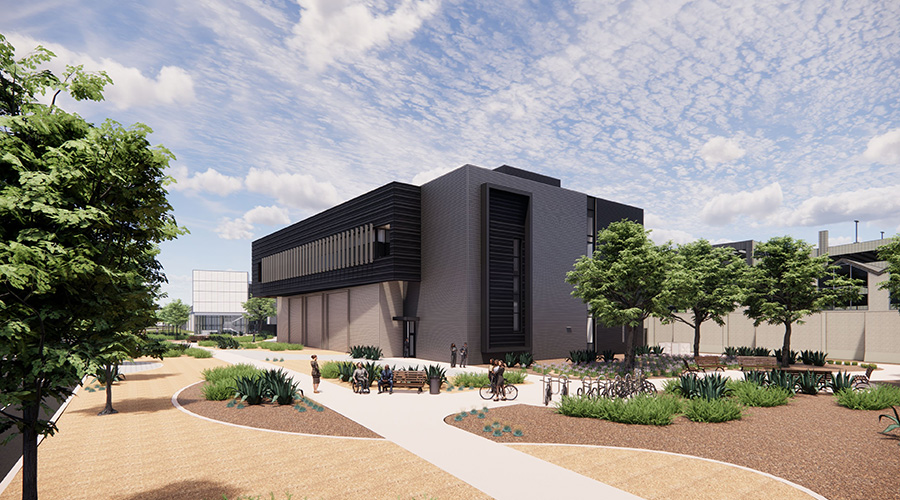An analysis of patient data from Fenway Health in Boston shows that PrEP is an effective form of prevention against HIV infection. The analysis was presented in an abstract at the HIV Research for Prevention meeting in Madrid on Tuesday, October 23.
Of 16,128 patients who underwent HIV testing at Fenway Health at least twice between 2012 and 2017, 25%, or 3,965, were prescribed PrEP. While 1.34% of the patients followed who were not using PrEP seroconverted, only 0.43% of those who were ever prescribed PrEP and 0.13% of those with a current PrEP prescription at the time of infection did.
Those PrEP patients who did seroconvert included those who had discontinued using PrEP and those who reported barriers to regular PrEP use, including insurance issues, scheduling challenges and perceived changes in risk. 12 of them had discontinued PrEP over a month before becoming infected, meaning only 5 patients who reported recent PrEP use became infected. Of those, only one patient with a current PrEP prescription who self-reported adequate adherence seroconverted, suggesting that when PrEP is used regularly as prescribed, it greatly reduces an individual’s chances of acquiring HIV.
“We found that between 2012 and 2017, almost 4,000 patients initiated PrEP at Fenway Health, one of the largest groups in a single US health care system. The rate of new HIV infections was significantly decreased among patients prescribed PrEP compared to those who did not access PrEP,” said Kenneth H. Mayer, MD, Medical Research Director and Co-Chair of The Fenway Institute at Fenway Health and lead author on the abstract. “Most of the few patients who became infected after being prescribed PrEP had discontinued it because of either insurance issues, challenges in engaging in care, changes in their risk perception, or concerns about stigma. The study found that PrEP is effective in decreasing HIV incidence in a primary care setting, but social and behavioral issues need to be addressed to optimize its impact.”
The patients who were part of this analysis were all being seen at Fenway Health, a health center that has long-established expertise in caring for sexual and gender minorities and also has programs that help cover drug costs. This may not be the case elsewhere, so while the findings demonstrate the effectiveness of PrEP among this patient population, wider application of PrEP will require addressing multiple behavioral and social/structural issues impacting those who could benefit from this HIV prevention approach.
HIV Research for Prevention (HIVR4P) is the world’s only scientific meeting dedicated exclusively to biomedical HIV prevention, including vaccines, antibodies, microbicides, treatment as prevention, pre-exposure prophylaxis (PrEP) and new forms of HIV prevention. Founded in 2014 and emerging from the previous AIDS vaccine and microbicide conferences, the biennial HIVR4P meeting responds to a growing consensus that effective HIV prevention requires a combination of approaches and close collaboration between fields of HIV prevention research. Conference funders include the Bill & Melinda Gates Foundation, U.S. Department of Health & Human Services, U.S. National Institutes of Health, Gilead, ViiV Healthcare, anRs (French Agency for Research on AIDS & Viral Hepatitis), Janssen, GSK, International AIDS Vaccine Initiative (IAVI), Instituto de Salud Carlos III, Gobierno de Espana, Ministerio de Ciencia, Innovacion y Universidades, International Partnership for Microbicides, MSD, and the South African Medical Research Council. The conference secretariat is the Global HIV Vaccine Enterprise. In 2020, the International AIDS Society will assume the secretariat role for the conference.
Since 1971, Fenway Health has been working to make life healthier for the people in our neighborhoods, the LGBT community, people living with HIV/AIDS and the broader population. The Fenway Institute at Fenway Health is an interdisciplinary center for research, training, education and policy development focusing on national and international health issues. Fenway’s Sidney Borum Jr. Health Center cares for youth and young adults ages 12 to 29, including those who are LGBT or just figuring things out; homeless; struggling with substance use; or living with HIV/AIDS. AIDS Action, Fenway’s public health division, works to reduce the number of HIV infections while supporting those already infected, and operates a needle exchange that serves as an entry point to healthcare services for active substance users.
 Grounding Healthcare Spaces in Hospitality Principles
Grounding Healthcare Spaces in Hospitality Principles UC Davis Health Selects Rudolph and Sletten for Central Utility Plant Expansion
UC Davis Health Selects Rudolph and Sletten for Central Utility Plant Expansion Cape Cod Healthcare Opens Upper 2 Floors of Edwin Barbey Patient Care Pavilion
Cape Cod Healthcare Opens Upper 2 Floors of Edwin Barbey Patient Care Pavilion Building Sustainable Healthcare for an Aging Population
Building Sustainable Healthcare for an Aging Population Froedtert ThedaCare Announces Opening of ThedaCare Medical Center-Oshkosh
Froedtert ThedaCare Announces Opening of ThedaCare Medical Center-Oshkosh